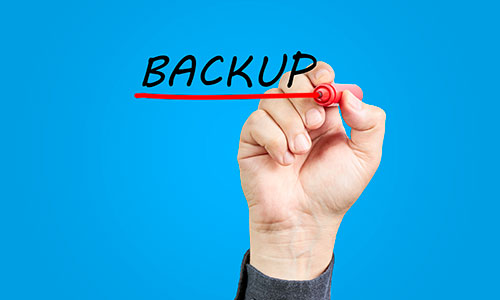So. Much. Email.
Email is a significant part of our workdays. In 2020, more than 306 billion emails were sent every day worldwide, according to Statista, which forecast email to increase to more than 376 billion a day by 2025.
Given the sheer volume of emails your clients encounter daily, email archiving is essential for managing the deluge over time. But email archiving is a vital part of any cyber resilience strategy as well. Here’s why: By using a third-party solution to securely archive your emails—and the critical data they contain—in the cloud, you’re minimizing your vulnerability to a cyberattack and maximizing your ability to recover from one.
The email problem will only grow, so you must select a solid solution to meet current and future needs. Ask these eight questions to determine the best email archiving solution for you and your clients.
1. Is the email archiving solution cloud-based?
Gone are the days of storing emails on-premises with your trusty magnetic tape. Today, cloud-based solutions provide the most secure, most reliable and most manageable solutions for email archiving. Cloud-based email archiving solutions also enable access, collaboration and email management from anywhere.
2. Is the email archiving solution easy to deploy?
An email archiving solution should be easy to implement and manage. Most SMBs have skeleton IT crews, so ease of use is essential for any application. Ensure your selection doesn’t need specialized expertise for day-to-day use.
3. Is the email archive easily searchable?
Your email archiving solution should provide an intuitive user interface that works well for your type of business. The solution needs to offer several ways to sort, search, organize and present data. Essentially, it should provide more than simply storage; it should enable your clients to digest and use their archives in ways that support their business, like the appropriate type or level of search functionality.
4. Is email archiving done manually and automatically?
A best-in-class email archiving solution will provide both manual and automatic functions for storing messages and files. These solutions will enable point-and-click archival and the ability to set up policies specific to your clients’ business and users, which run automatically and archive emails in the background.
5. Is the email archiving solution right for your clients’ environment?
Be sure to select a solution that provides the right amount of storage data for your client’s business. Overestimate the capacity, so you’re not continually upgrading.
6. Is the email archiving solution right for your application?
It seems like a no-brainer, but you need to be sure the solution you’re sourcing is compatible with (or even built exclusively for) the email application you’re using.
7. Is the email archiving solution highly secure?
If you aren’t satisfied with the level of security on any solution, just keep on walking. Your email archiving solution should provide email encryption while stored and in transit. Additionally, your solution should back up archived emails continuously to ensure cyber resilience in the event of a disaster or attack.
8. Is the email archiving solution backed by a channel-friendly provider?
While your priority is getting a best-in-class solution, you’ll also want to ensure that you’re getting the pre- and post-sales support and compensation you need to deliver the solution profitably.
8 Tips For Selecting The Right Email Archiving Solution For Your SMB Customers
You know your small and medium business (SMB) clients need an email archiving solution to protect and organize the ever-expanding email data, but which one?
- April 11, 2022 | Author: Khali Henderson

Article Key
- Objective: Data Backup
- Solution: Endpoint Backup
